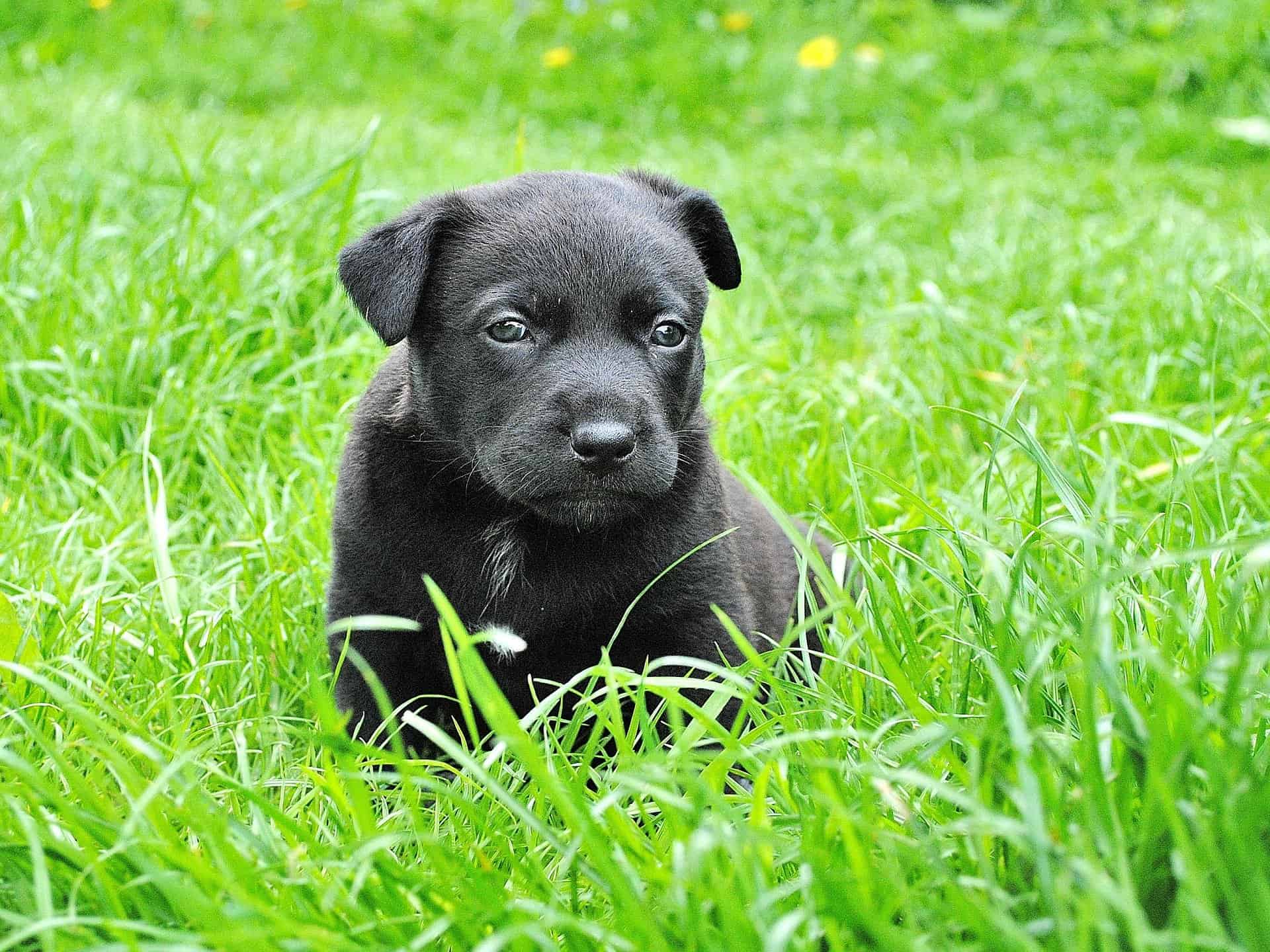A dog eating grass and coughing frantically is mostly instincts. But it could be something more serious, like kennel cough or heartworm.
You know, we tend to forget that instincts still drive our dogs.
This takes us to the nature of a dog! Even though we do not look at it that way, dogs still possess animal instincts.
These instincts may lead to your dog eating grass and coughing at some point in his life.
Why is my dog eating grass and coughing?
Instincts
The domestication of dogs has made it possible for us to own dogs. By ‘owning,’ I mean we can now comfortably live with dogs in the same households.
This has led to humans’ passion for making the world a better place for everyone, including our dogs. This is why we have processed dog foods that are entirely safe to use.
The diet lacks the necessary nutrient when feeding our dogs processed food. These nutrients include the digestive enzymes needed to absorb nutrition into the blood.
This may lead your dog to crave these nutrients and thus eat grass to make up for them.
Boredom
Dogs get bored pretty quickly, especially when left alone. This means that he will develop destructive behavior every time he feels bored.
Well, it is our natural response from our dogs since they do not understand our language.
Your dog will eat grass simply because he is bored. This can result from little or no exercise or mental stimulation. This is a common occurrence in dogs with high energy levels.
Whenever you leave the house, you will leave him with no choice but engage in some unwanted behavior.
They enjoy it
Some dogs graze. They like it. They want to explore without limits, leading to a particular liking for the plants. Dogs that love to feed are driven by instincts and learned behavior. For instance,
Hunger
Underfed dogs are likely to engage in eating non-food items. Often, most people will feed their dogs without observing the rules of feeding a dog.
Puppies are fed three to four times a day, while adult dogs will do fine with two or three meals per day.
However, the nutrient composition and frequency of feeding will determine the amount of food you should offer your dog.
Dogs with high energy levels will feed more than the others and vice versa. Your dog’s breed will also determine the amount of food to feed him.
You should, however, consider consulting your vet about the foods to offer your dog.
This way, you will ensure a healthy diet for your dog. This is an important exercise to avoid future obesity and heart failure issues.
Attention-seeking
This is another expected behavior you will find in dogs. They love playing games to get your reaction; once they get it, they do not stop.
Dogs seek attention when they feel ignored by their owners or want to initiate play. He may eat grass to do so!
Unfortunately, the more you give him the attention he seeks, the more you condone the behavior. And also, if you ignore him completely, he will probably develop other coping mechanisms.
These mechanisms often involve undesirable behaviors like grass-eating. The best solution for this kind of vice is to train your dog’s alternative means to seek your attention.
Stress and anxiety
Stress and anxiety are also among the leading causes of a dog eating grass. Your dog will stress over some issues, like having guests in your house or a member of the family missing.
The death of a family member can affect your dog or even introduce a new baby to the household.
Your dog may also experience fear if you bring a new pet or a giant dog home. If you want to adopt a new dog, you should be prepared to deal with anxiety.
Monitoring your dog will help you identify any signs of stress or anxiety.
Even though dog-eating grass is harmless, if your dog has some grass seeds or residues stuck in his throat, it may lead to coughing. Coughing is never a good sign for our canine friends.
It is usually associated with various illnesses, some of which can be life-threatening. Your dog might be allergic to grass which can also make him cough.
However, what are some of the reasons why your dog is coughing?
My dog is coughing all of a sudden
As mentioned earlier, seeing your dog coughing is never a good sign. This is because it is associated with respiratory illnesses and sometimes heart disease.
Once you notice your dog coughing up, you should seek medical advice as soon as possible.
Below are some of the possible reasons why your dog is coughing;
- Allergic reaction – Dogs, like humans, can also be allergic to exposure to some substances. For instance, if your dog enjoys grazing, he may cough from an allergic reaction to the grass. He may also have grass stuck up in his throat, blocking his airways. Your dog will cough to clear his airways to get enough air.
- Respiratory illnesses – Unfortunately, our dogs are prone to different respiratory diseases. These illnesses are usually treatable but could be life-threatening if left untreated.
- Tonsillitis – even though rare, your dog can contract tonsillitis. This is the inflammation of the tonsils located under the jaws. This brings about a sore throat and a high-pitched cough. You may also notice your dog licking his lips and experiencing difficulties in swallowing.
- Kennel Cough – This is a common and highly contagious disease in our canine companions. The viral illness is characterized by a deep and honking cough accompanied by gagging.This cough will worsen when your dog is involved in simple physical activities. There is no definite treatment for kennel dog cough, but it wears off on its own after a few days. Older dogs and dogs with weakened immune systems are at high risk of contracting the illness.
- Tracheal collapse – once you have ruled out allergy reactions and other medical conditions, it is time to check for collapsed trachea. This is especially if you keep a smaller dog breed or a senior dog.Dogs diagnosed with obesity are also at high risk of getting tracheal collapse. This condition is characterized by painful breathing and a dry cough.
- Heart Failure – Dogs can also suffer from congestive heart failure. This condition is a result of fluid accumulation in the lungs and heart.This is caused by the inability of the dog’s heart to pump blood properly. Dogs with this condition will avoid exercise and show signs of general weakness.
- Bronchitis – Bronchitis in dogs is characterized by dry hacking cough and wheezing. Your dog may also gag afterward.
- Pneumonia – due to obstructed airways, your dog may develop pneumonia. Some symptoms of pneumonia in dogs include trouble breathing, wetness, and productive cough.Your vet can recommend the most appropriate medication depending on whether pneumonia’s a causal agent.
More on why is my dog coughing after eating grass?
Dogs can also cough due to heartworms that block the blood vessels. In large numbers, heartworms will cause heart failure in your dog.
This, therefore, makes the parasite life-threatening. Mosquito bites put your dog at risk of heartworm disease.
Coughing in dogs will most likely mean that he is sick. However, if your dog has vomited lately, it might be why your pup is coughing.
This is because vomit can get into the airway, causing obstruction and irritation. Your dog will cough to try and clear his airways.
As mentioned earlier, dog eating grass and coughing is not something you want to ignore. Instead, you should see your vet for a conclusive diagnosis and treatment.
This is especially if your dog is coughing. Below are some ways to stop your dog from eating grass and coughing.
How to stop my dog from eating grass and coughing
- Identify your dog’s allergies
Most of your dog’s allergies are not as harmful. They are your dog’s reaction towards some things. If your dog loves to eat grass and is allergic to the plant’s seeds, you may have a little problem.
However, you can treat the allergy using antihistamines. It is recommended to visit your vet for a prescription.
Alternatively, you can restrict your dog from eating grass. You can do this by limiting access to the yard or training him out of the habit. You will be able to reinforce training through rewards.
- Treat Anxiety
As discussed earlier, your dog may engage in grass-eating out of anxiety. This anxiety can result from separation from the owner, change of environment, or fear of a stranger.
Getting a giant dog is also a risk for your existing dog to develop anxiety.
In severe cases, treatment for anxiety includes training, anti-depressant medications training, anti-depressant medications in extreme cases, and exercising your dog.
Spending enough time with your dog is essential for him to feel satisfied. This also allows you to monitor him for any behavioral changes.
It is also essential to understand that your dog dislikes being alone. Dogs should naturally live in packs, and domestication makes them their collection.
We live and treat each other like family and protect each other. Failure to see you around is likely to cause anxiety and stress issues in your dog.
- Parasite control
As much as we want to protect our grass-eating dogs from poisonous chemicals, controlling parasites in your home is essential. This includes both external and internal parasite control.
For instance, your yard might be a home for parasites if you do not spray pesticides. This means that your dog is at risk of getting parasitic diseases.
It would help if you also considered vaccinating your dog often against heartworm disease. This is because mosquito bites transmit the disease from one animal to another.
It is impossible to predict the likelihood of your dog contracting heartworm disease.
It would help if you treated your household for mosquitos. This should also include keeping your yard clean to keep burrowing animals away.
Mosquitos also breed in bushy places; thus, it is essential to keep a tidy household.
- Seek Medical Assistance
Coughing means that your dog is sick! Upon noticing your dog coughing, you should contact your vet as soon as possible. Even though monitoring his behavior is necessary, a coughing dog will need medical help.
Your vet is going to examine your dog to give a conclusive diagnosis. This way, you will be able to identify the best method of treatment and care.
You can also consult your vet on the best home care for your dog as he recovers. This is mainly for dogs with kennel cough.
In conclusion
Grass-eating may not be as harmful to our canine buddies. However, this should not mean that we encourage the behavior.
Instead, you must ensure he is not doing it out of boredom or other behavioral problems. If so, you should train him out of the habit. You can provide chew toys for dogs who won’t stop eating grass.
This is because some dogs do it. After all, they want to and are led by the instinct to chew. We should always prioritize our dog’s mental and physical health and thus the need to provide care for them.
Think about it:
How much money have you spent on your dog over the last year?
It’s way too much even to count.
Yeah, I lost count too.
I wish I had found this Training program LONG time ago.


